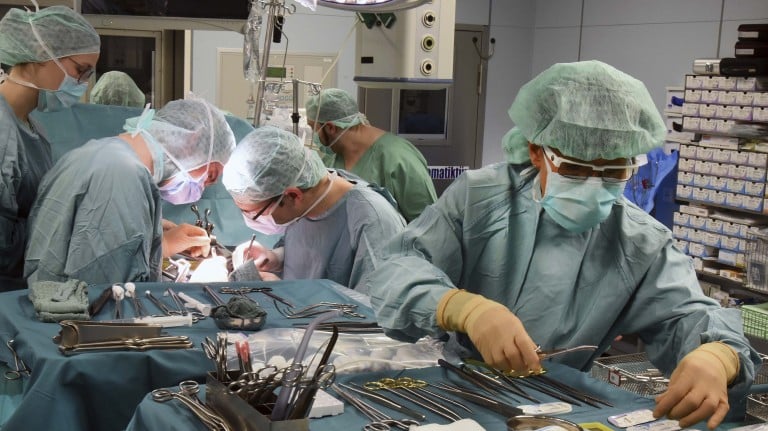The news: A machine has been developed that can keep human livers alive for seven days. It also seems to help improve the quality of the livers.
How it works: The machine re-creates a level of pressure similar to that found inside the body, and pumps oxygen, blood, and nutrients to the livers while removing cell waste products like carbon dioxide. The amounts of nutrients, blood, and oxygen are automatically adjusted by algorithms, meaning the machine doesn’t require constant supervision, according to a study in Nature Biotechnology.
On to humans: The team responsible, from the University of Zurich in Switzerland, has been developing the machine for four years, experimenting using pig livers. For the latest test the researchers used 10 human livers that were too damaged for transplant. Six of the livers survived and seemed to be healthier, with lower levels of compounds linked to injury.
The potential: Livers can currently only be stored for up to 24 hours on ice before transplant, so a machine that can keep them alive for a week could allow many more people to get transplants. There are about 17,000 people waiting for a liver in the US right now, with an average waiting time of almost a year.
Next steps: The researchers still have some way to go to prove that the invention can work in practice, and that livers stored this way would be safe when transplanted into patients.
Sign up here to our daily newsletter The Download to get your dose of the latest must-read news from the world of emerging tech.

